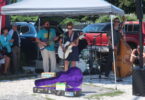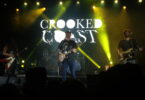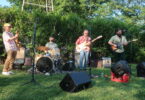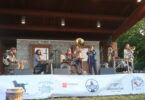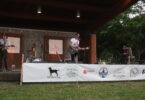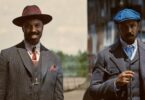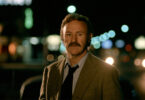CHATHAM – “I make a habit of practicing in strange places,” said John Masko, 26 a freelance symphony conductor from Providence, who was visiting family in Chatham and practicing his public craft very publicly, on Chatham Lighthouse Beach.
Smiling beach people, happy dogs, and probably fish wandered by with barely a glance at the young man conducting the orchestra playing in his head.
It was Johannes Brahms’ Third Symphony, which will be performed on Monday by the Narragansett Bay Symphony, he said. Masko is the conductor of that performance, he said.
“It’s very important to put yourself in an expansive environment,” said Masko, who last year received a Master’s Degree in Conducting from San Francisco Conservatory. His undergraduate degrees is from Yale in music and history. His music degree concentrated on music theory, he said.
Masko has built himself a part-time career as a conductor, working almost every night a week with several different orchestras, he said. His day job is as a writer of case studies for Harvard Business School, he said.
Masko grew up in Providence, where he now lives. When he was young he was a pianist who, as a teenager collected orchestral records.
One of his least favorite parts of playing piano, said Masko was “locking yourself in a room to practice.”
And so he gravitated towards conducting, which allowed him a different way to connect with the music he loves.
A conductor’s job, he said, involves a variety of skills. “You have to be technically apt with the actual gesturing,” he said. “You have to be able to interpret a score and have original ideas about the music. And it requires being a leader.”
The leadership involves many things, including “being good at the other sort of social aspects of it,” he said.
But it really requires, he said, getting an orchestra of musicians to buy into a singular vision of a written piece of music.
“There is a spectrum of ways to interpret music,” said Masko. “One way may be raucous and driving and another may be pendulous and weighty, with all sorts of gradations between,” he said. “There are all sorts of variables like rhythm, phrasing and tempo.”
“Leadership is part of it and it is different for every ensemble you are in front of,” he said. And leadership works or it doesn’t, he said, because “people realize and recognize how much and how little you are able to help them.”
Thus the practice. “Right now, I’m doing what I can remember,” he said.
And he kept at it, stopping, studying, and doing it again. It is not often that the creative process is on such display, and it was fascinating, even if we did not understand.
Masko pursued this environment. “I practice in coffee shops all the time. I’ve gotten good at blocking out ambient noise, even ambient music,” he said. “But you do get a lot of interesting reactions.”
It does not bother him. What does bother him is being in front of a large room without this sort of preparation. “It’s always a very jarring thing, like staring right into the abyss,” he said.
Better to stare at the Atlantic Ocean.
This video is a mashup of what we saw of Masko, plus part of the opening of the first movement of Brahms’ Third Symphony. It’s performed by the Czech National Symphony Orchestra, a link Masko suggested.
Though his Masko’s movements are not timed to the music, it seems as they are, especially as we watch him in the large expansive environment of Chatham Light Beach.
Please like us on Facebook
 Please see, by Brian Tarcy of Cape Cod Wave —
Please see, by Brian Tarcy of Cape Cod Wave —
YOU CAN’T SELL RIGHT FIELD, A Cape Cod Novel


